Year 2 Two Digit Subtraction Worksheets
Misisng Gaps (A) (With a Number Line)
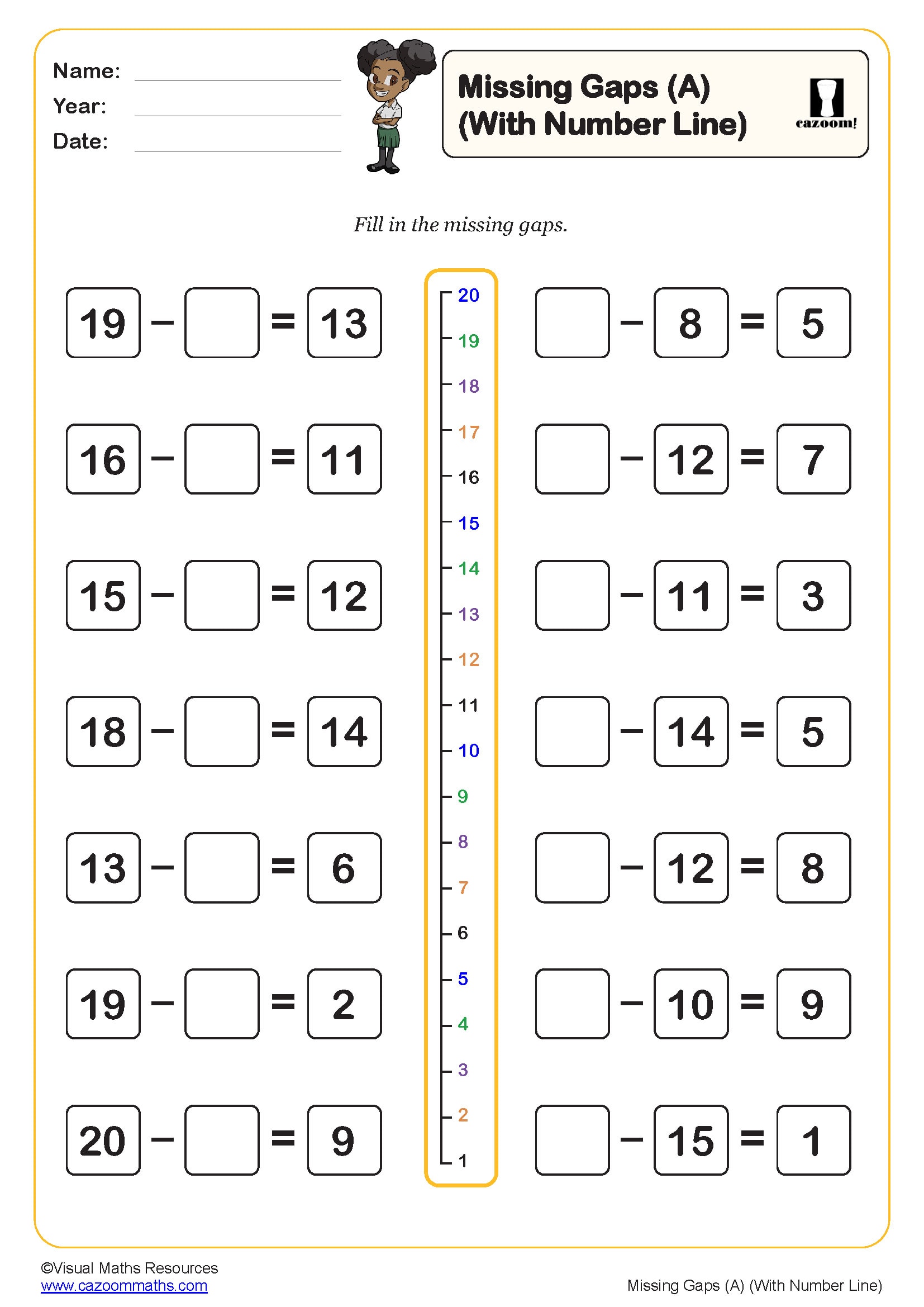
Missing Gaps (A)
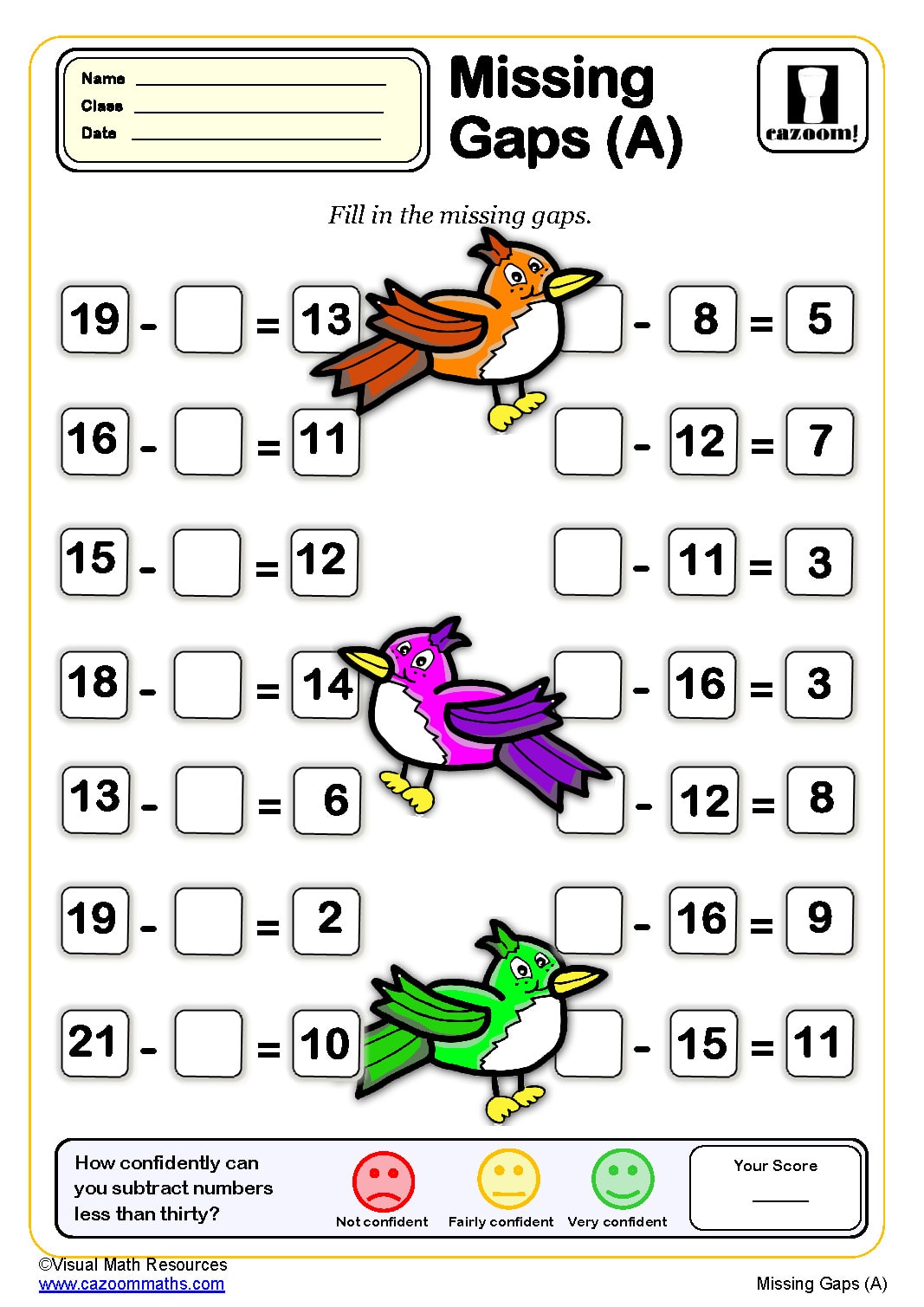
Missing Gaps (B) (With a Number Line)
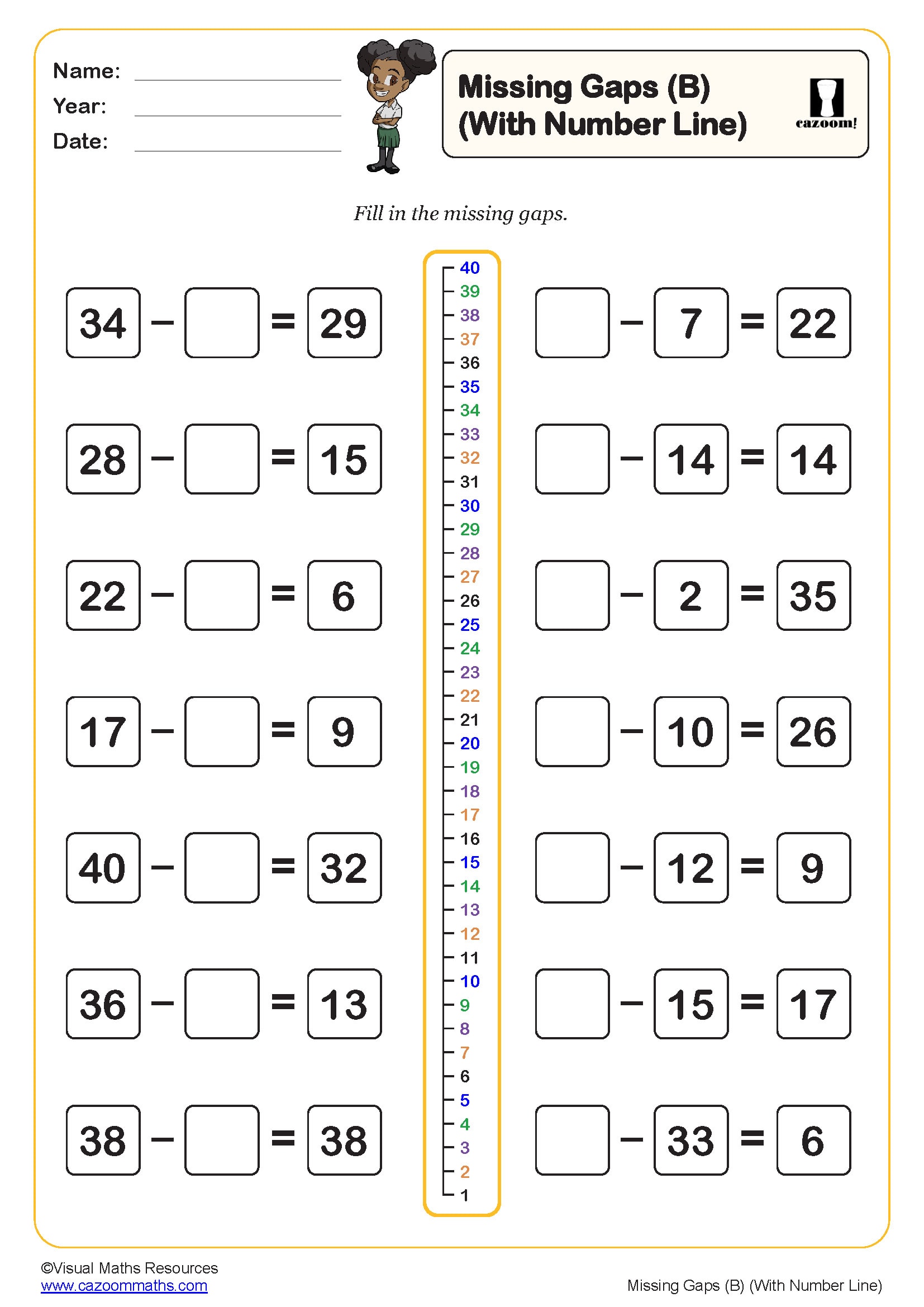
Missing Gaps (B) (Without a Number Line)
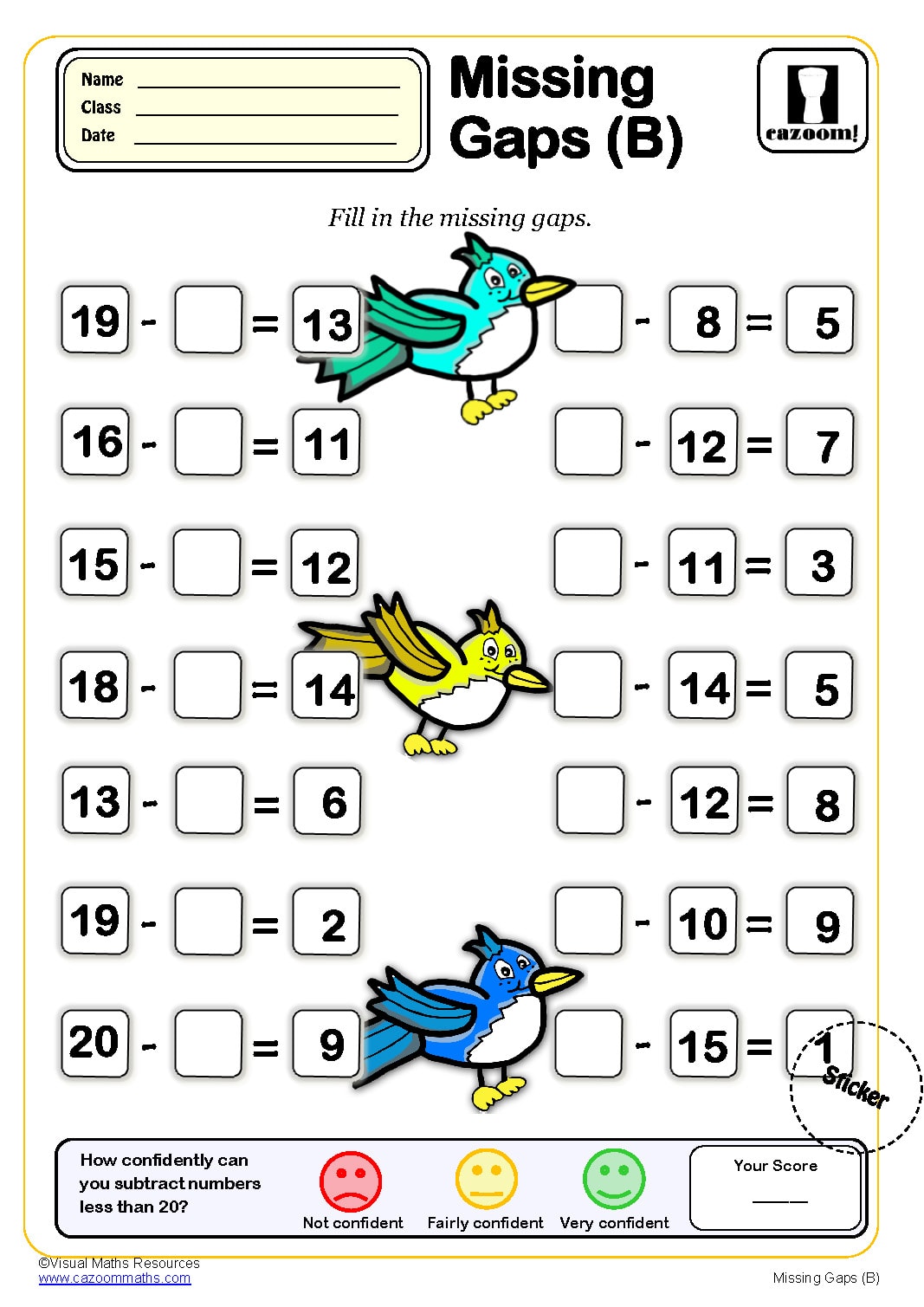
Subtracting from Multiples of 10 (B)
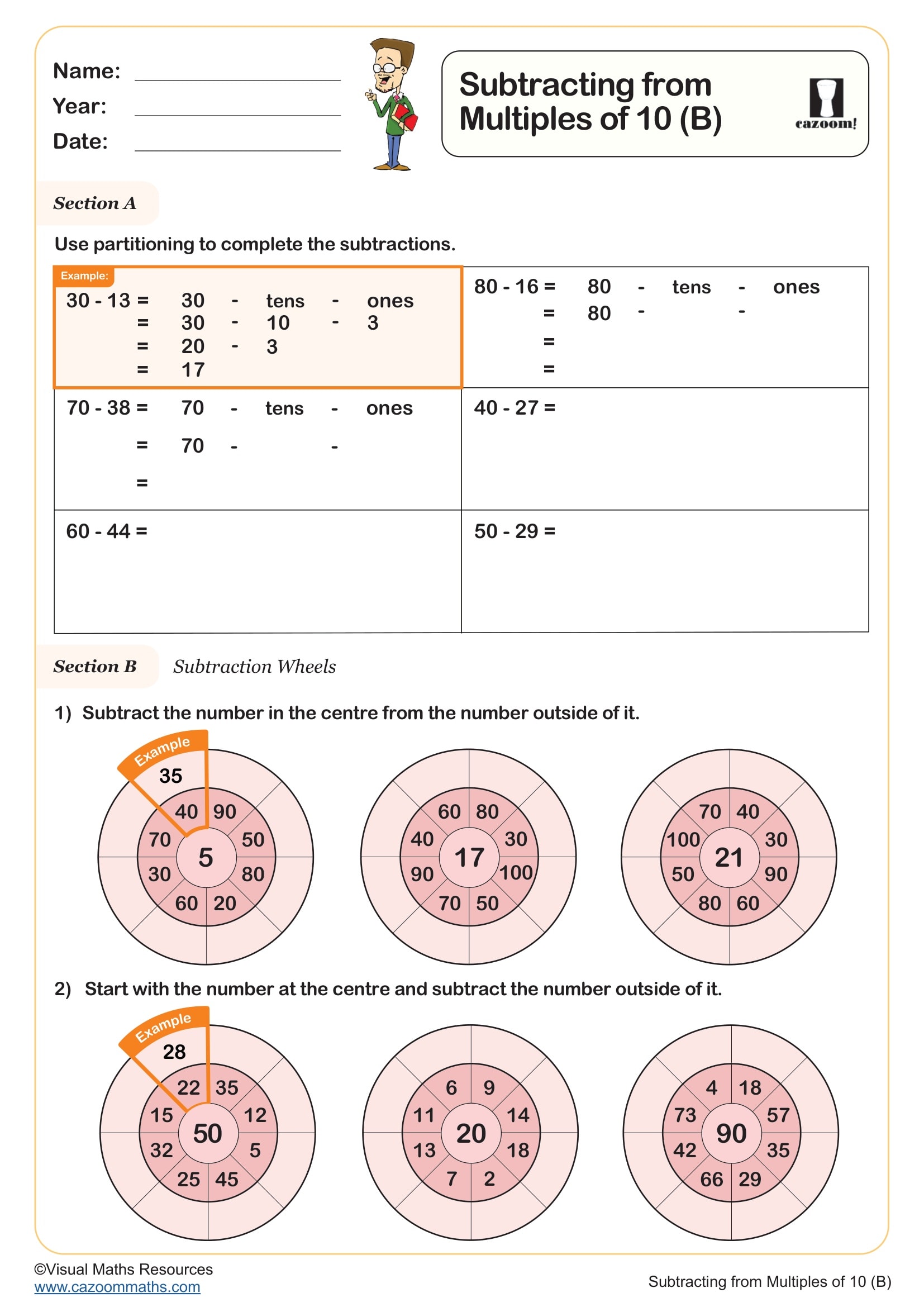
Subtracting Numbers Up to 100
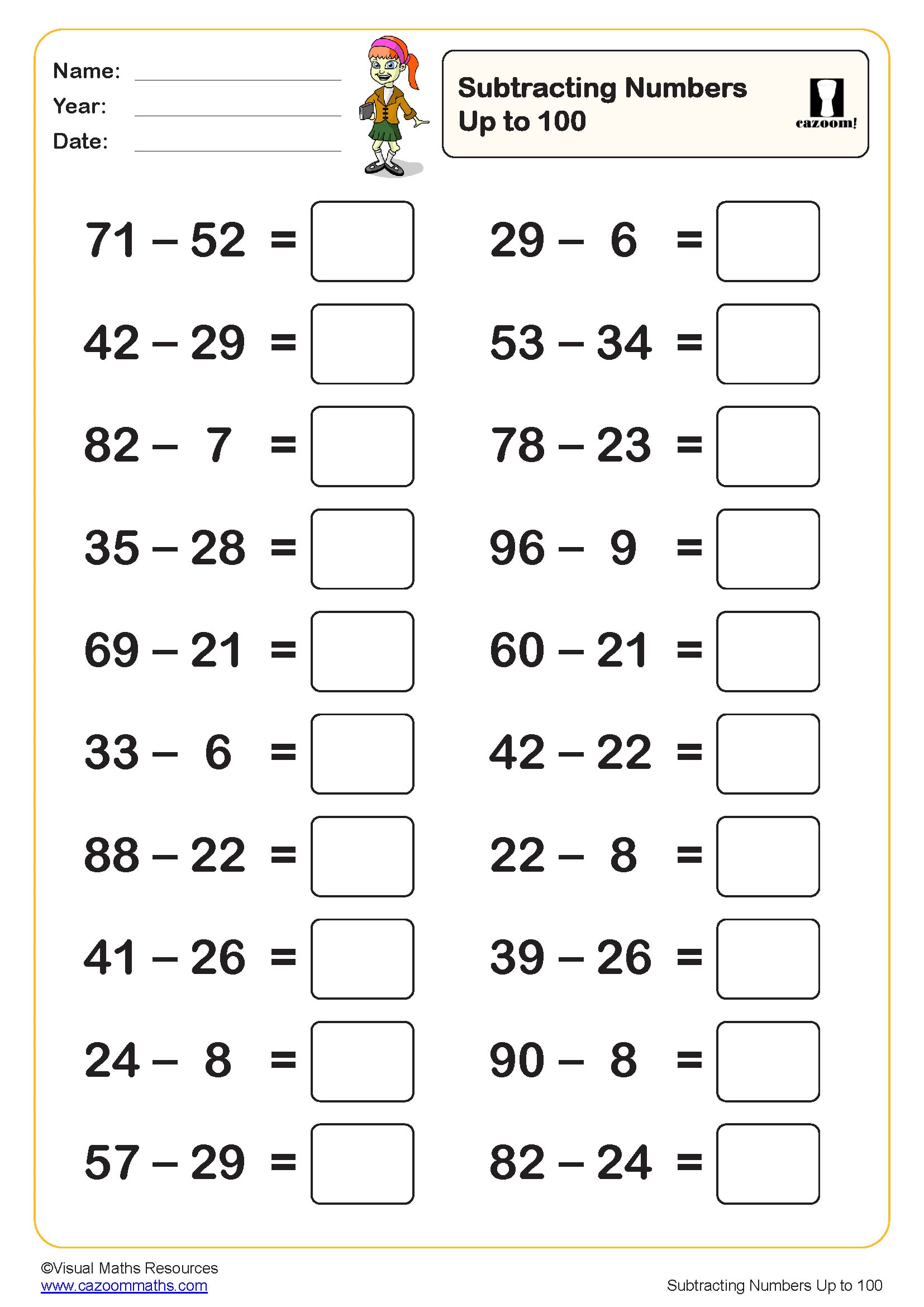
Subtracting Numbers Up to 30 (A)
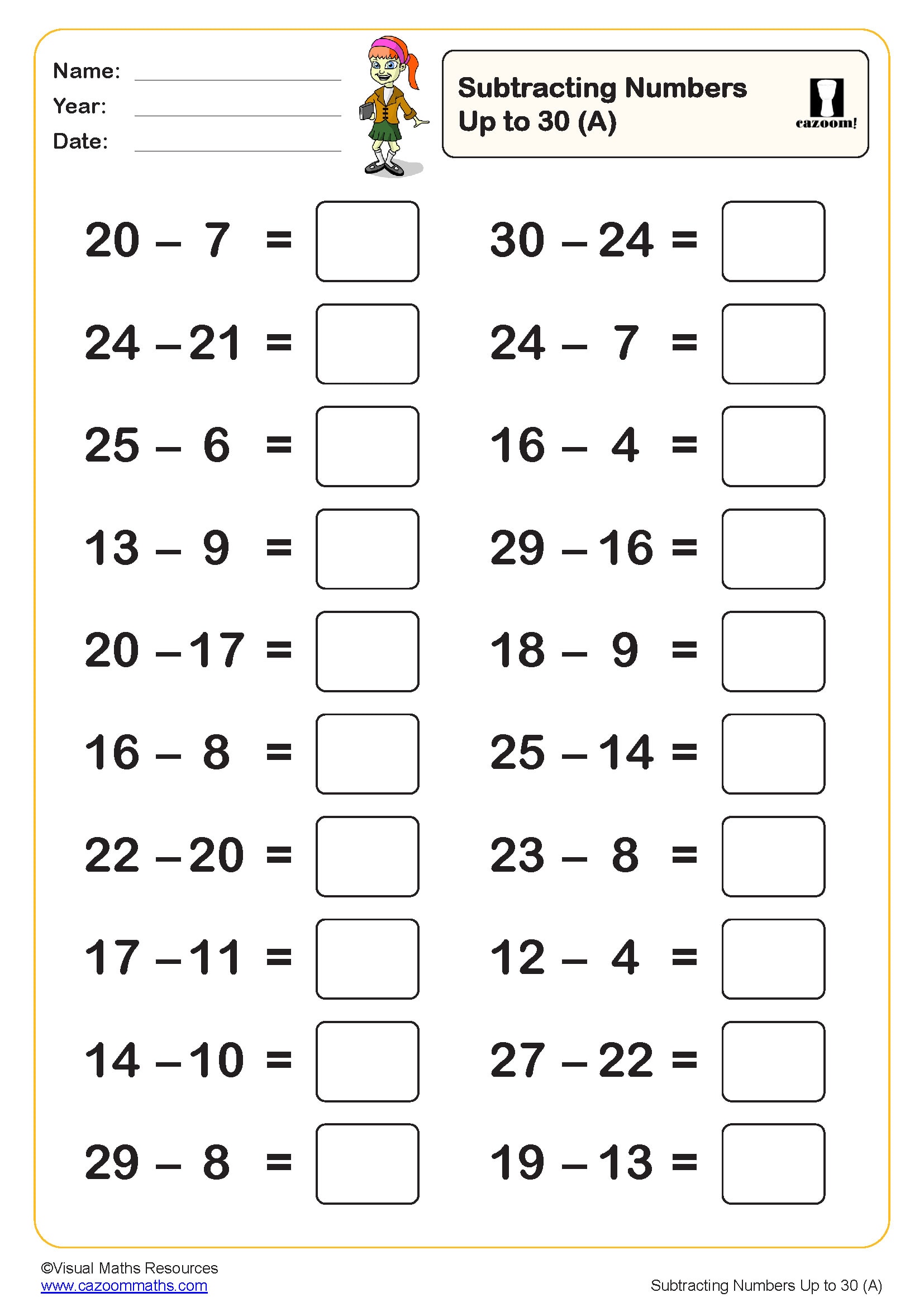
Subtracting Numbers Up to 30 (B)
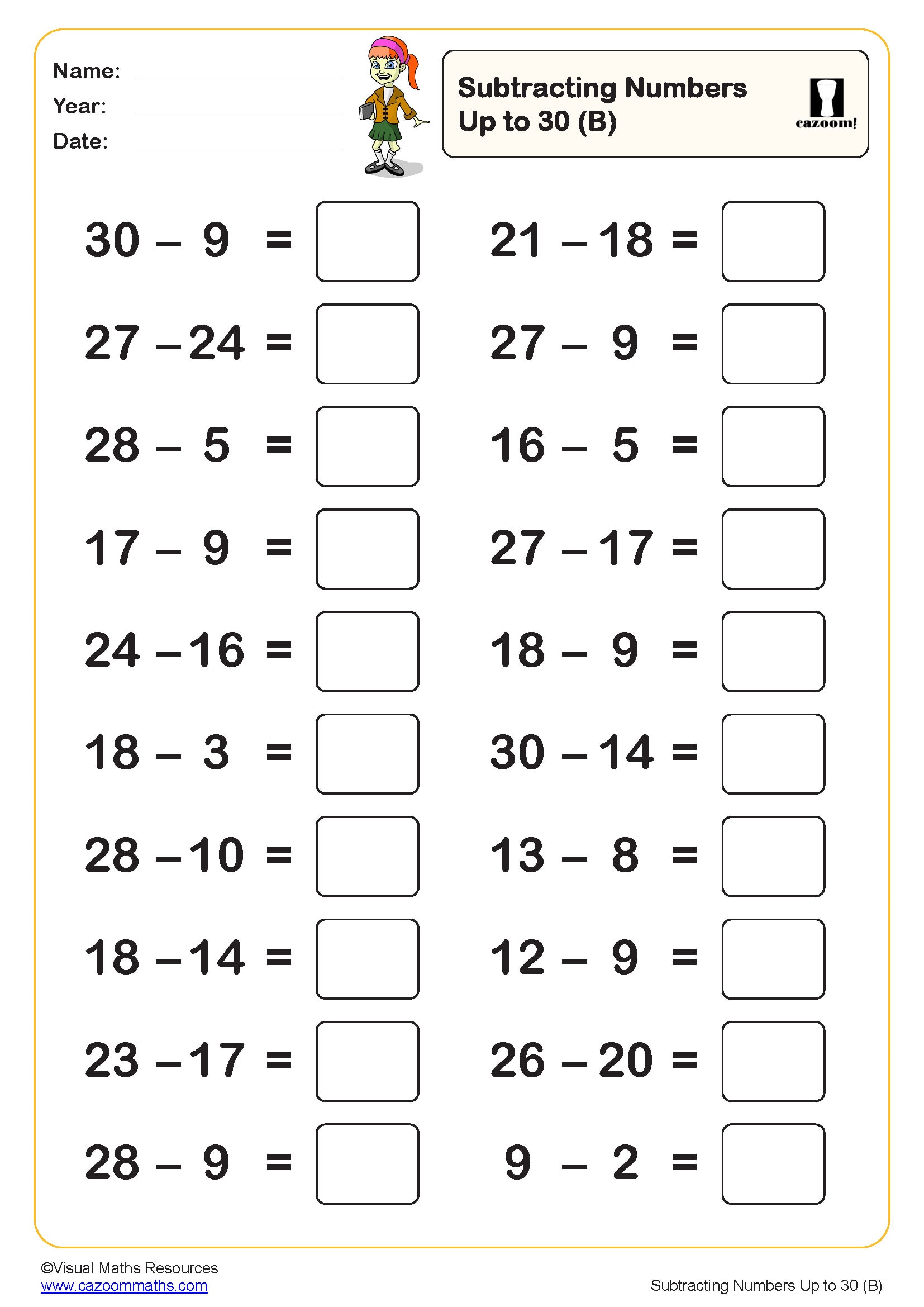
Subtracting Numbers Up to 30 (C)
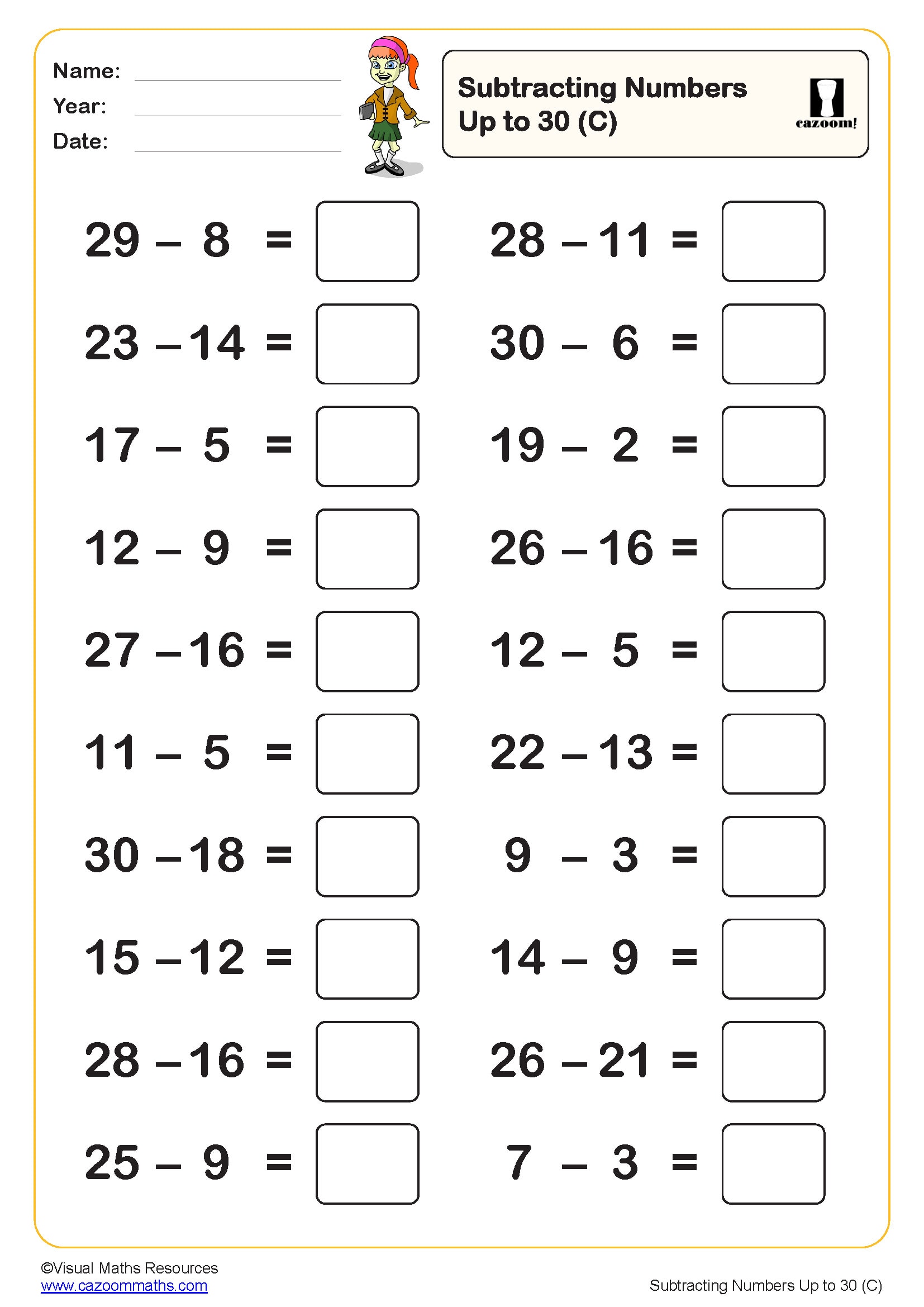
Subtracting Numbers Up to 50
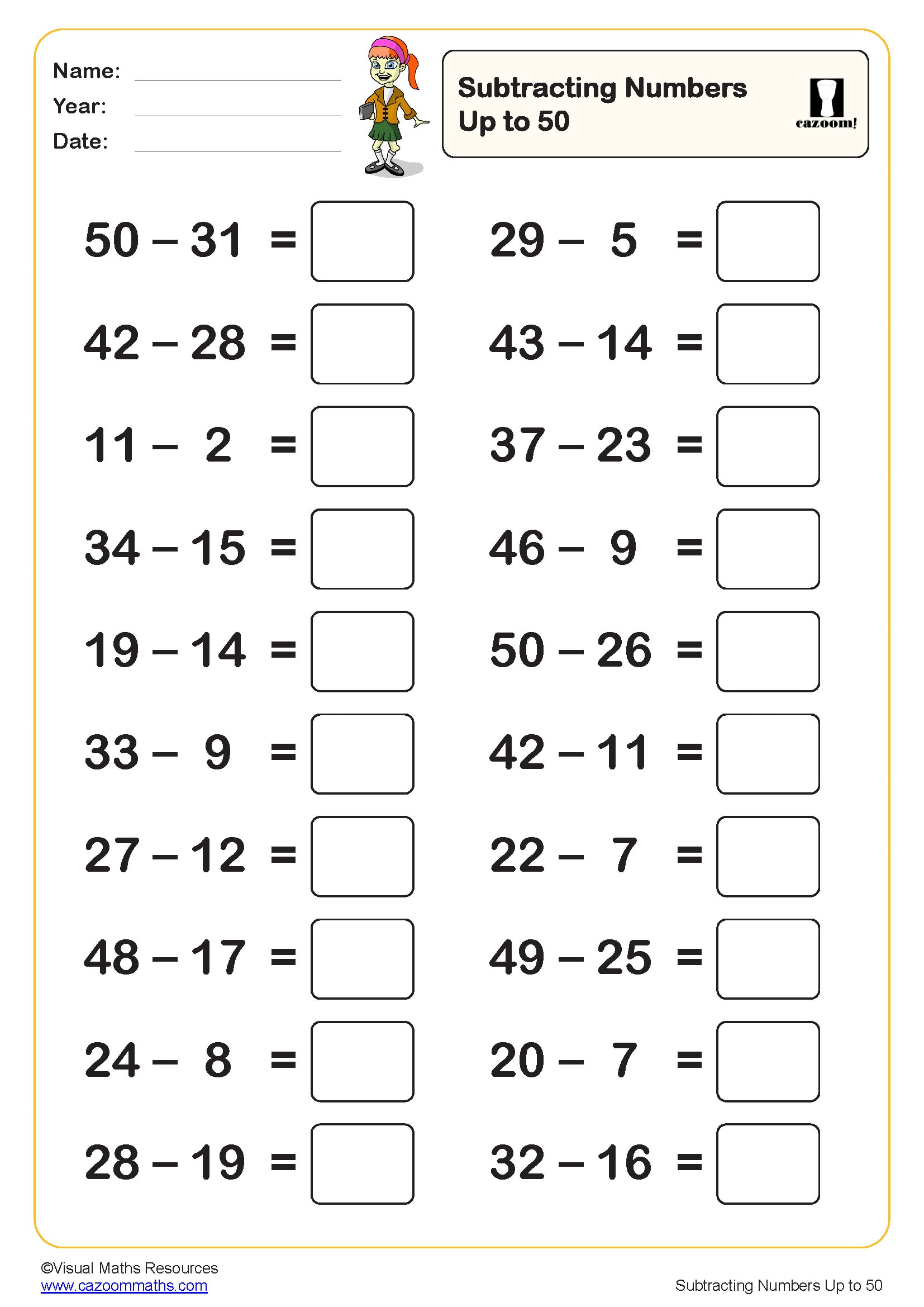
Subtraction Wheels (B) (Up to 10)
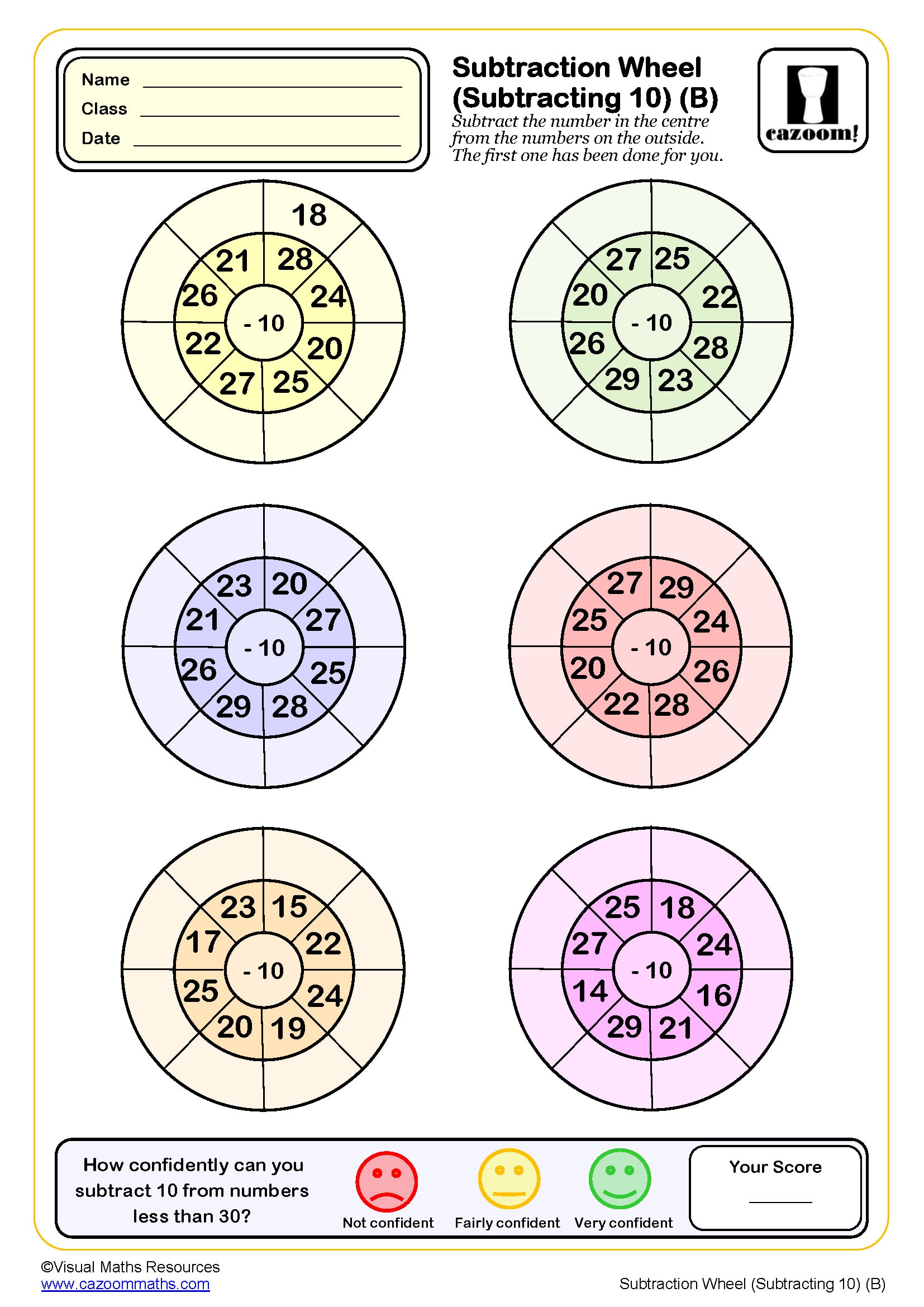
Subtraction Wheels (Subtracting 10)
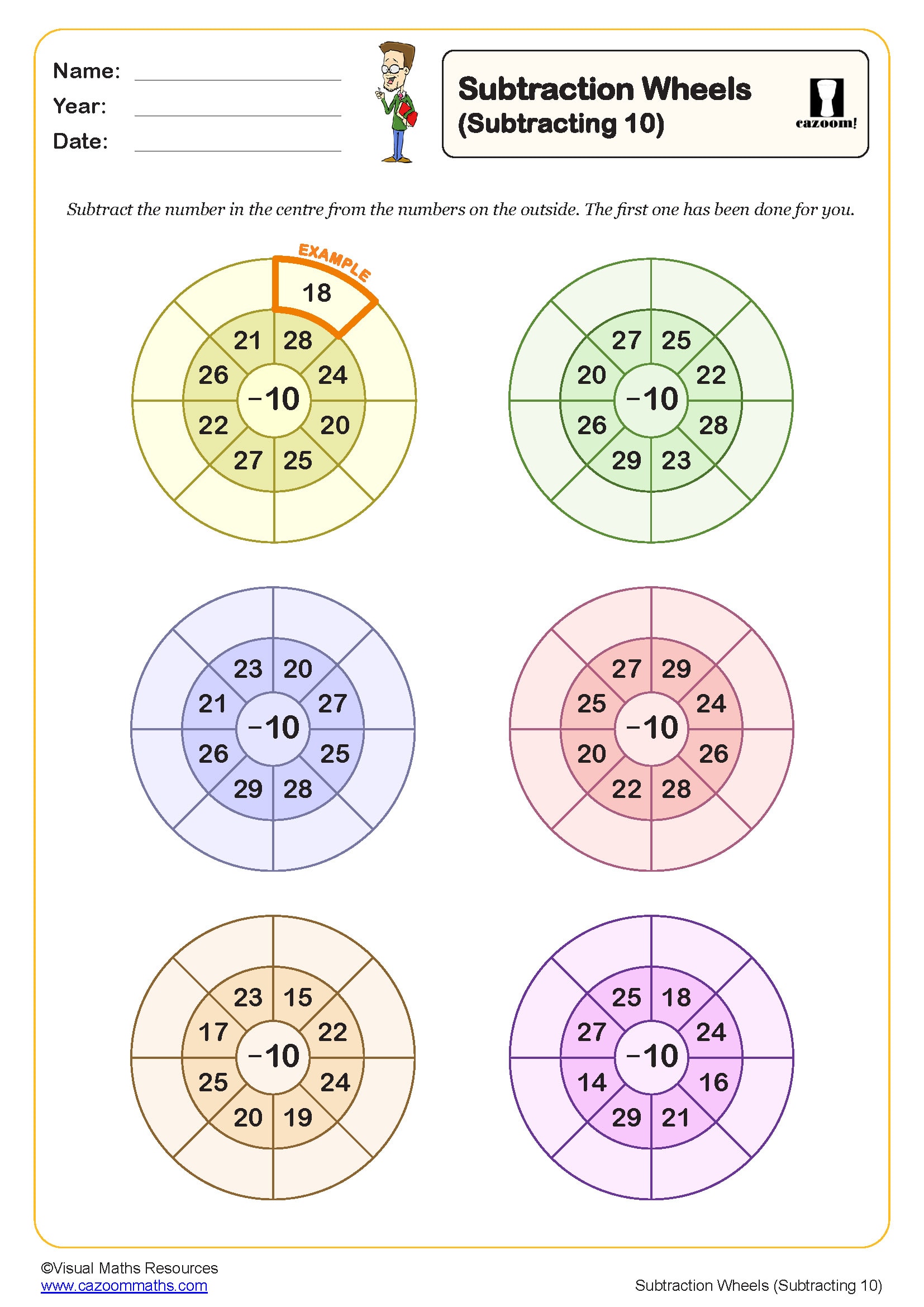
Taking Away 10 (10 questions)
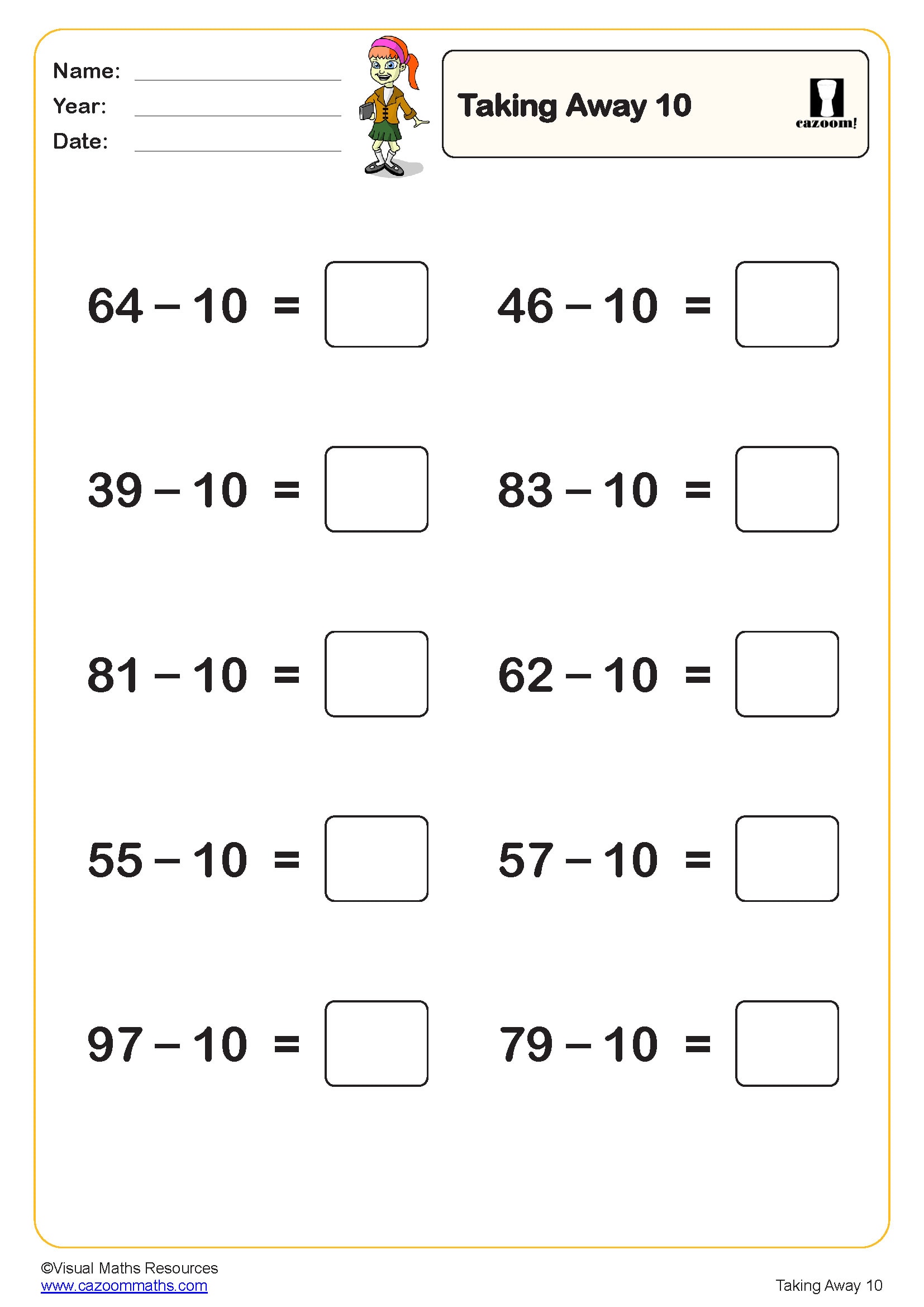
Taking Away 10 (20 questions)
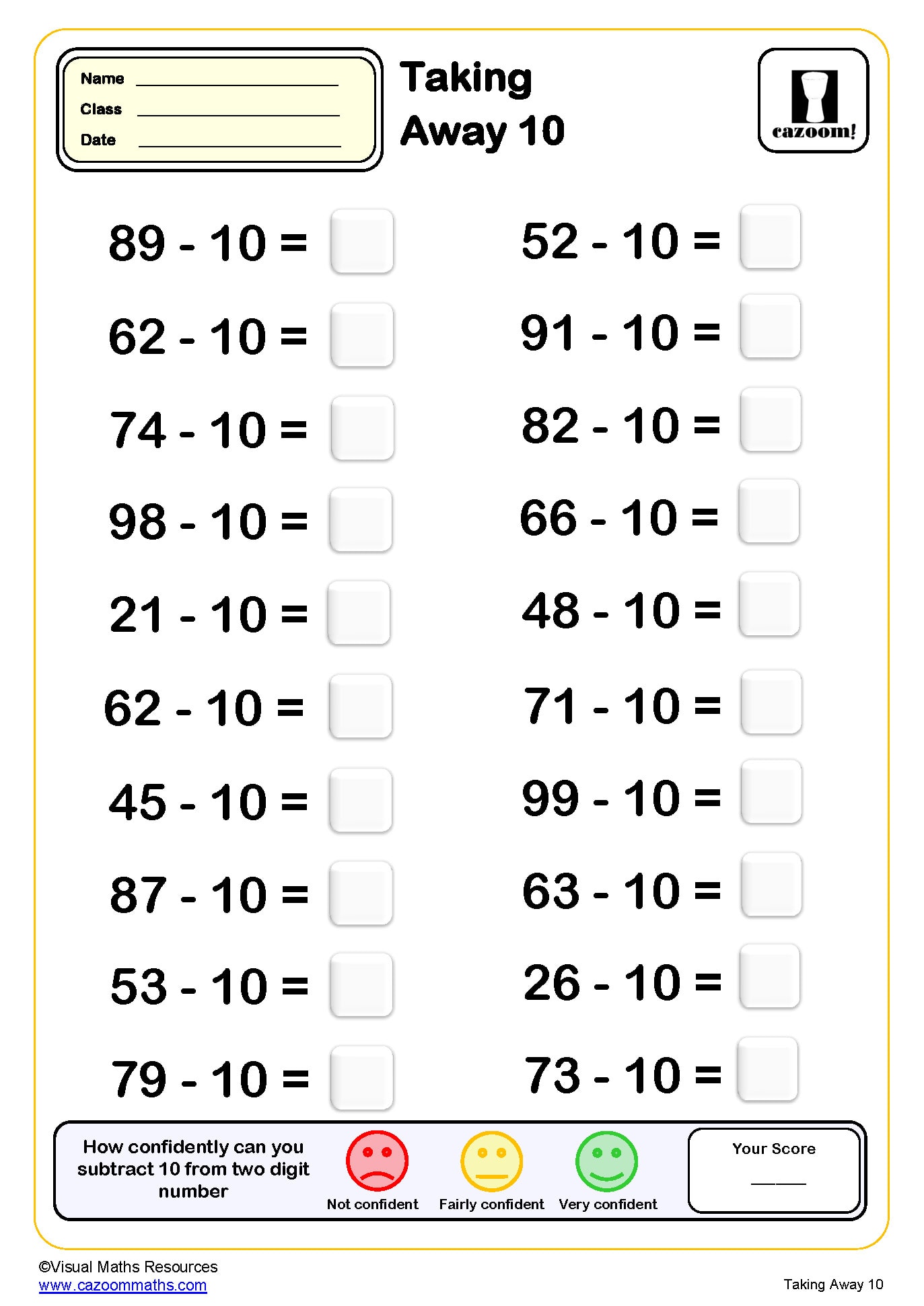
Taking Away 10 (50 questions)
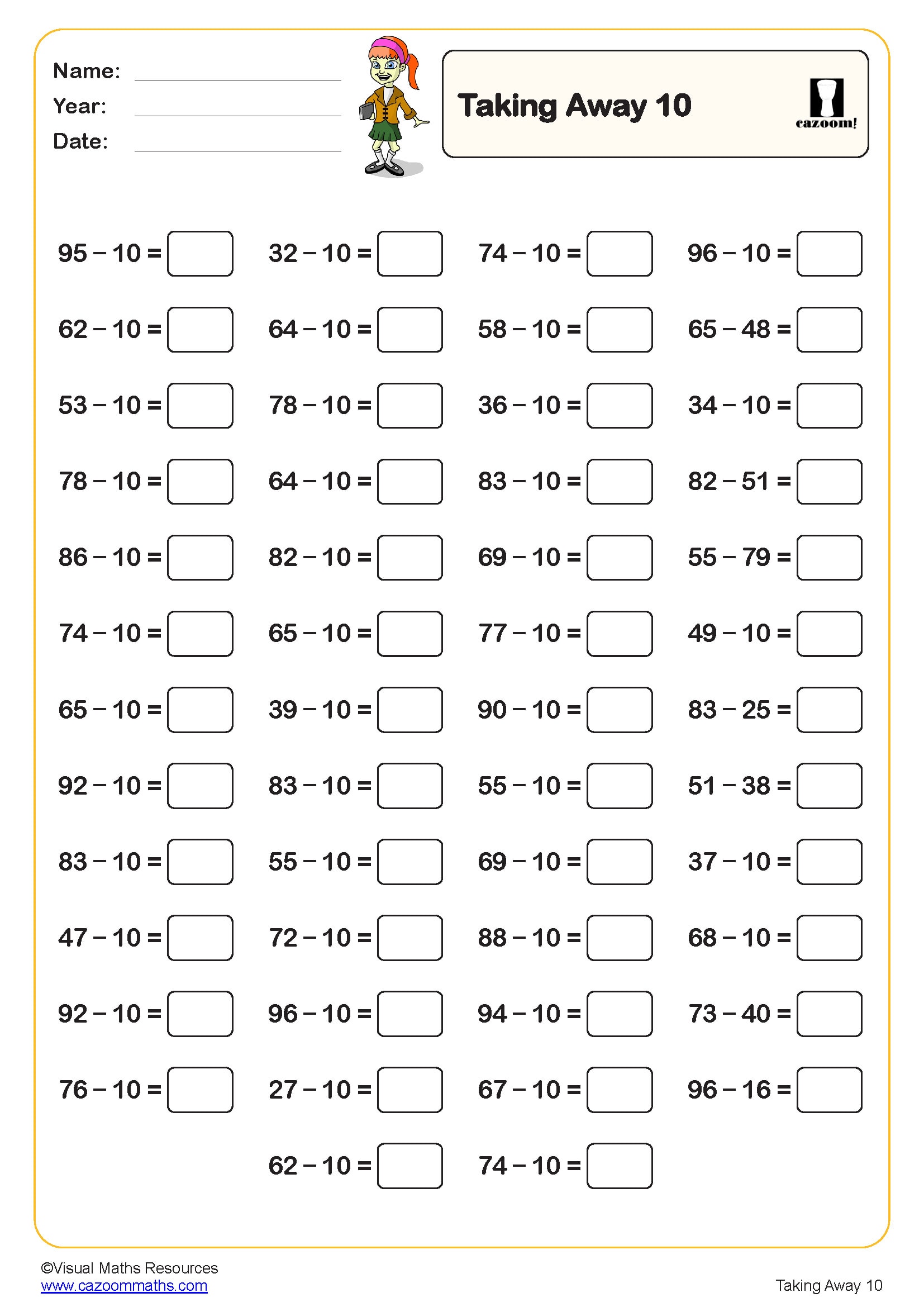
Taking Away 20 (10 questions)
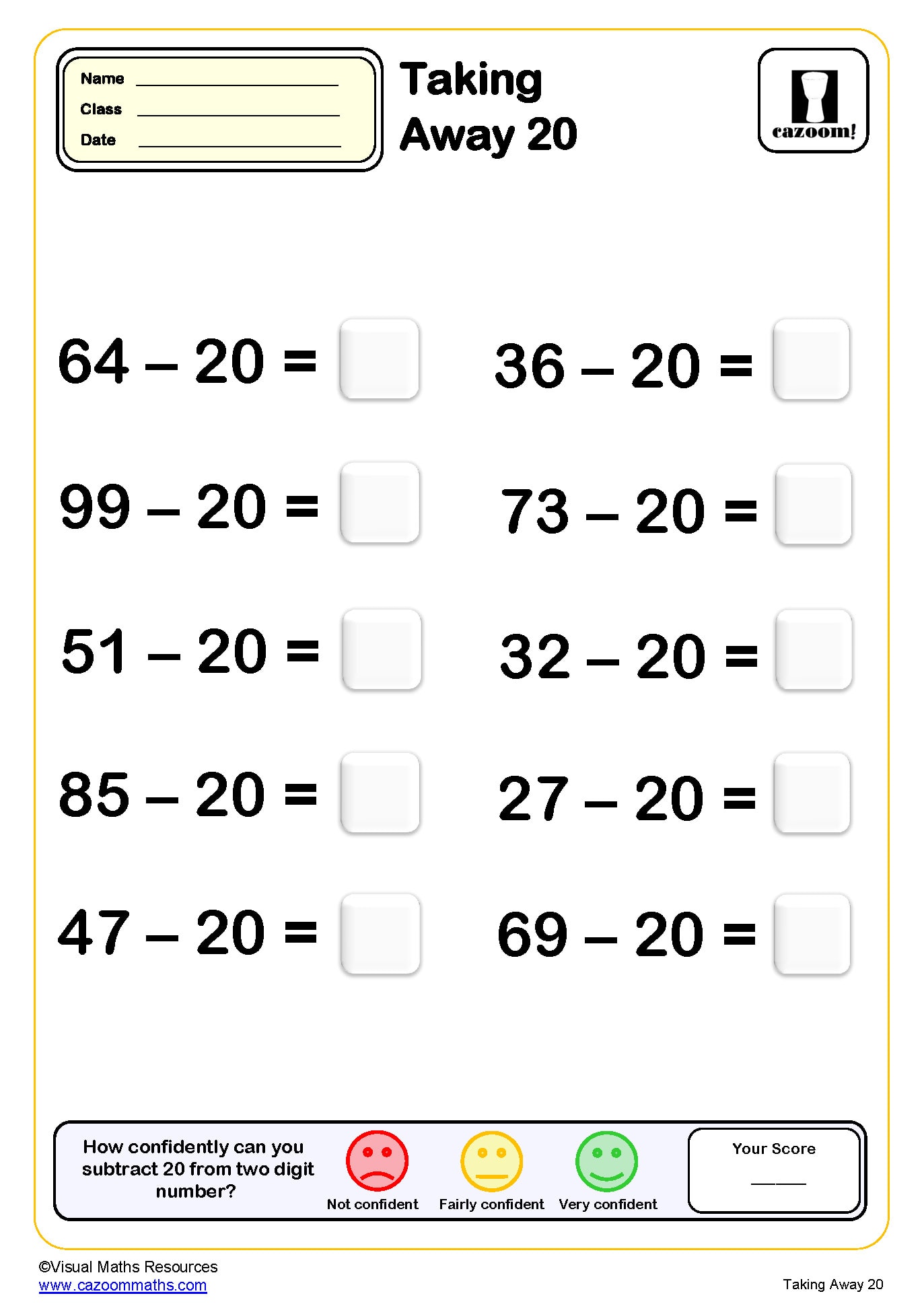
Taking Away 20 (20 questions)
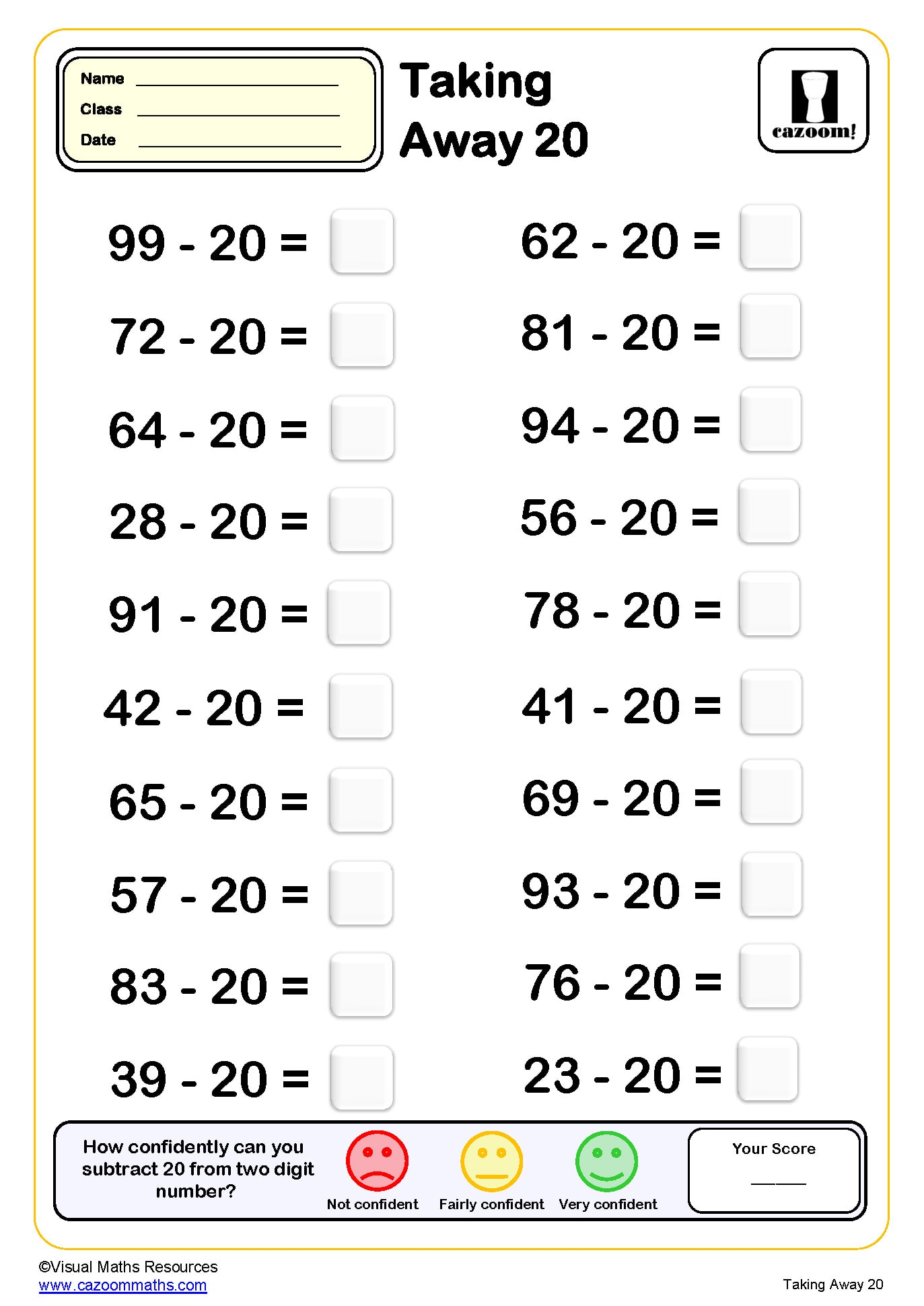
Taking Away 20 (50 questions)
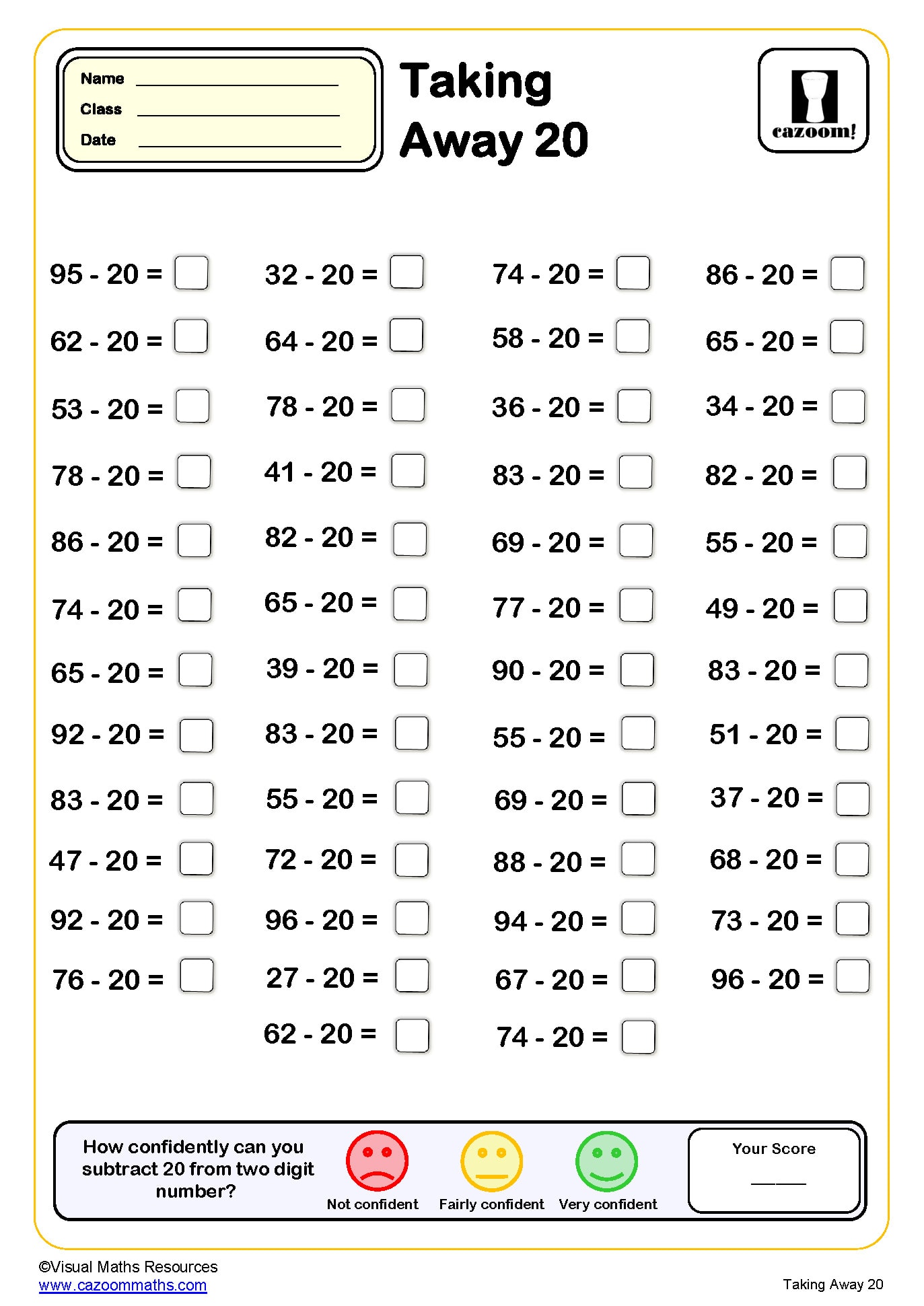
Taking Away Numbers with the Same Last Digit (10 questions)
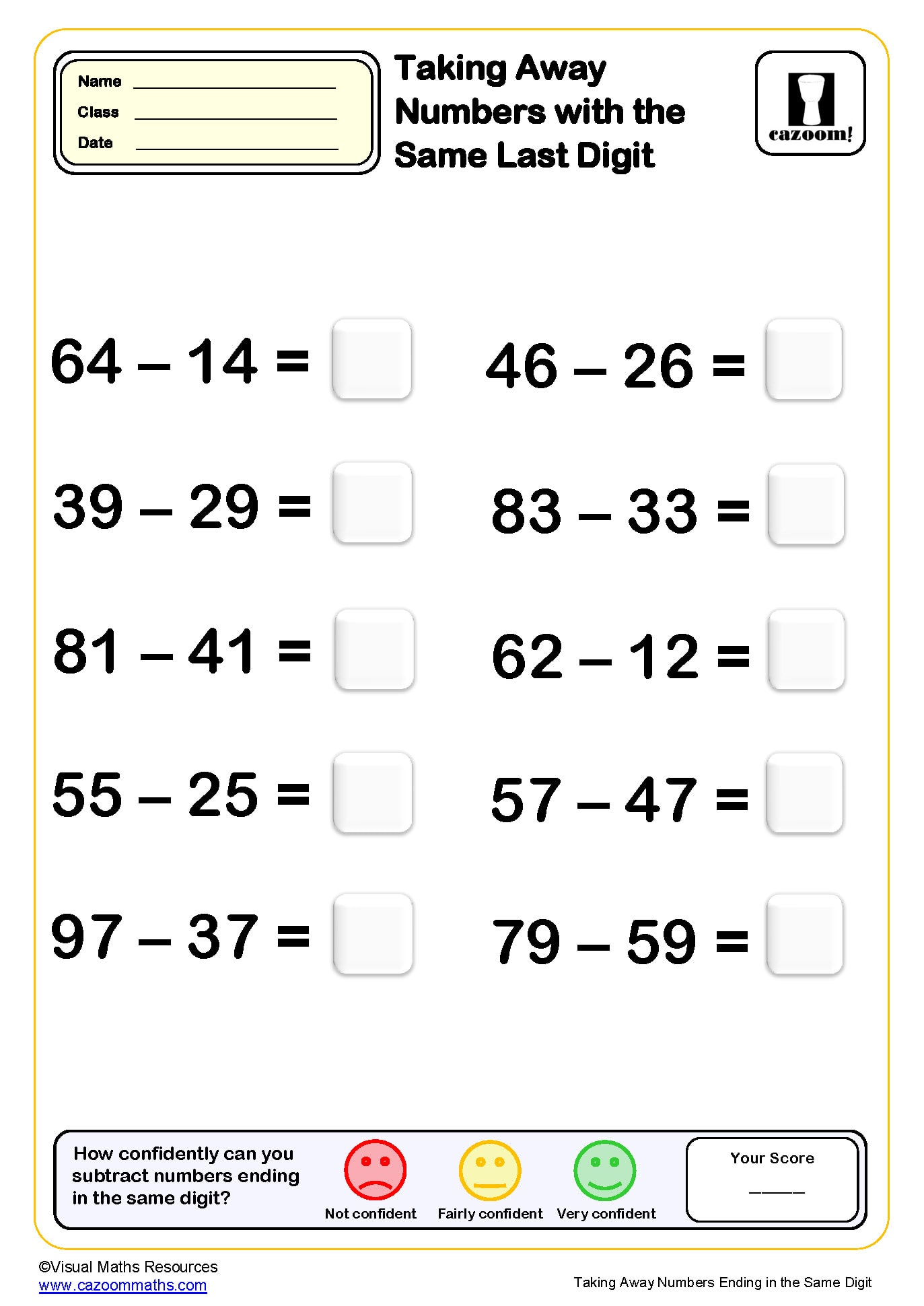
Taking Away Numbers with the Same Last Digit (20 questions)
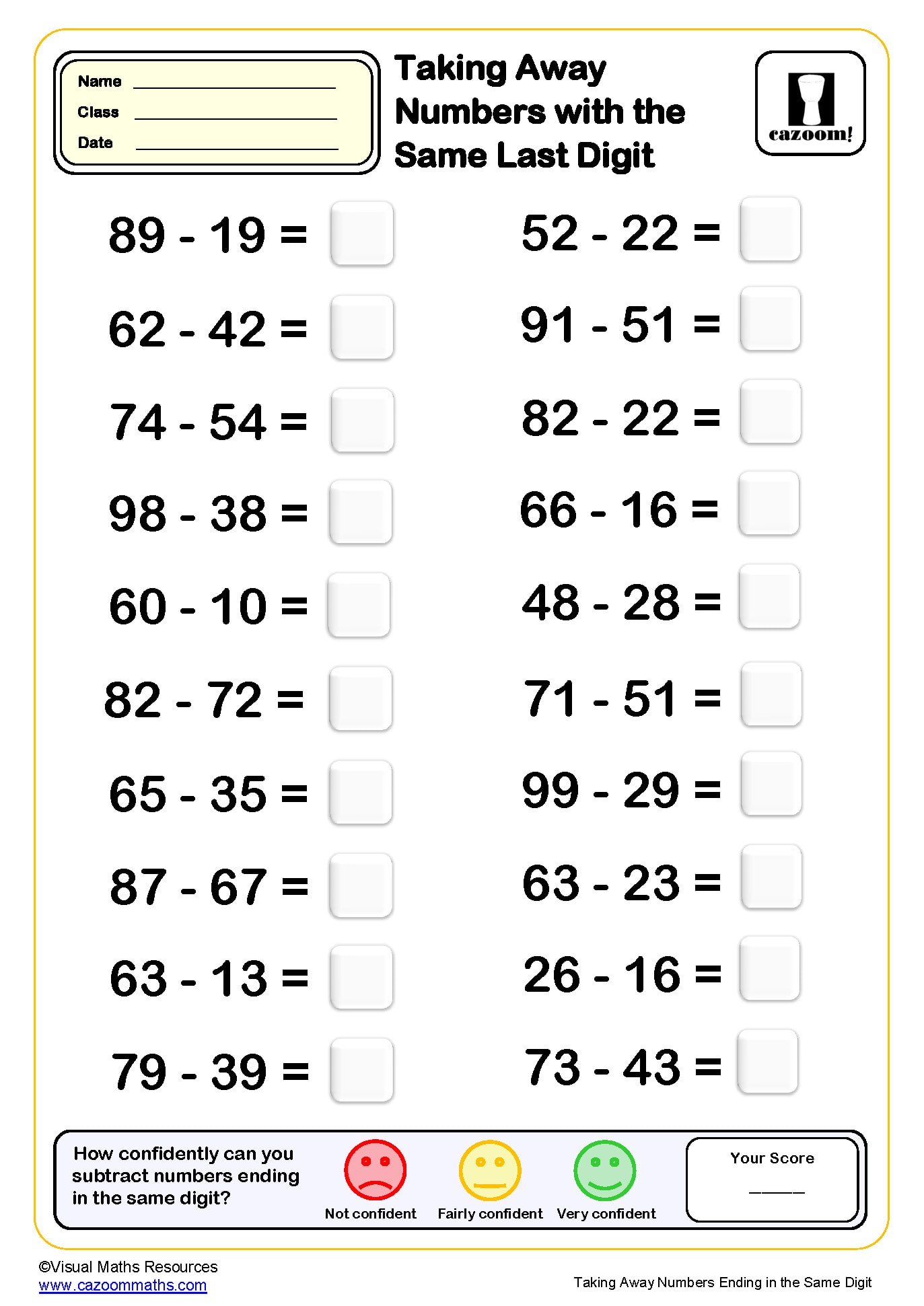
Taking Away Numbers with the Same Last Digit (50 questions)
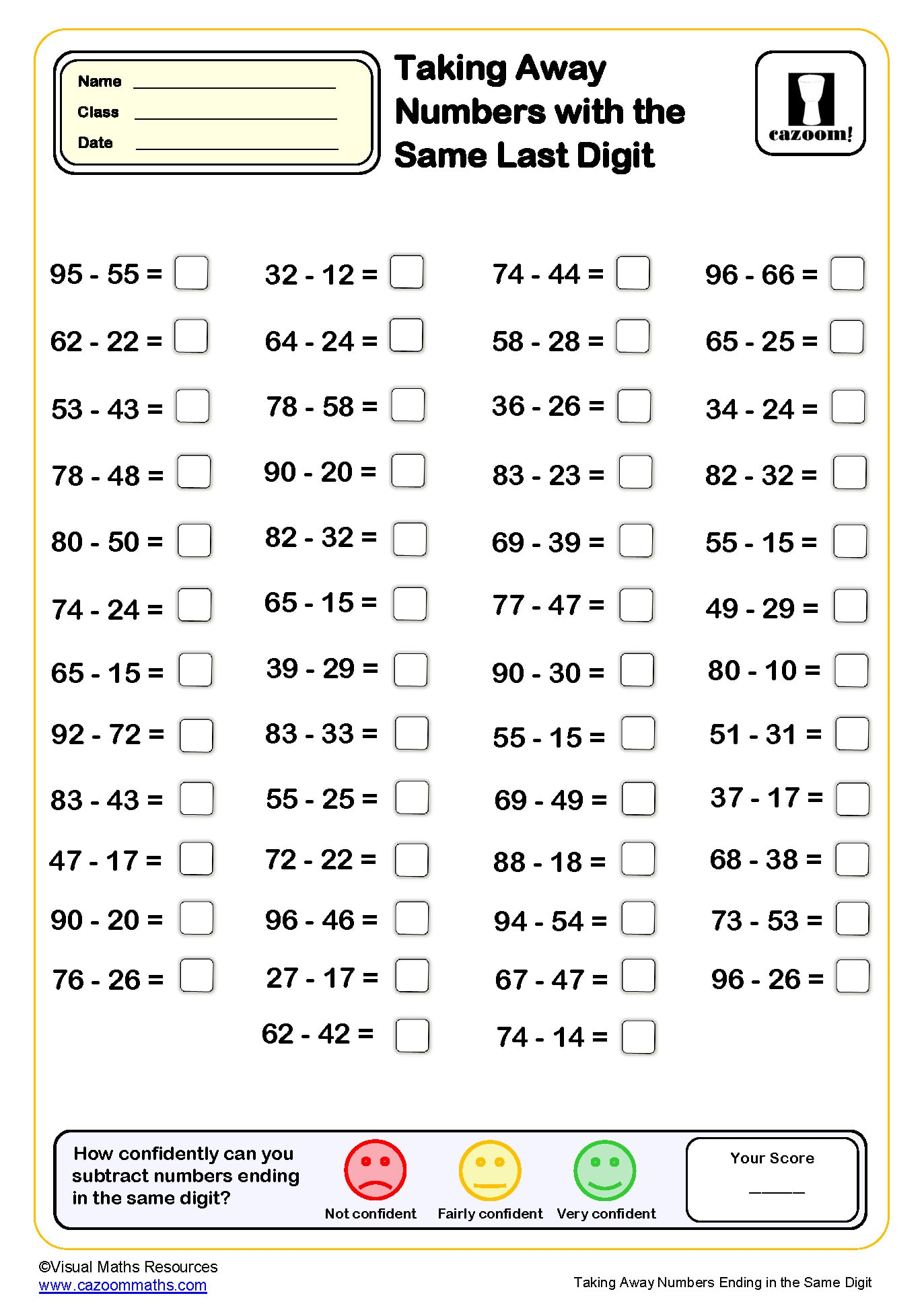
All worksheets are created by the team of experienced teachers at Cazoom Maths.
Two-Digit Subtraction Worksheets PDF Collection with Step-by-Step Solutions
We have specifically created this comprehensive collection of 2-digit subtraction worksheets in ready-to-use, printable, PDF format and accompanied by detailed answer keys. Each PDF resource includes clear working methods, helping students understand the borrowing process. These ready-to-use materials save teachers hours of preparation time while ensuring students grasp essential double-digit subtraction skills.
Essential Skills Covered in Our 2-Digit Subtraction Worksheets
Two-digit subtraction is simply taking away one two-digit number (like 10-99) from another, which can be tricky when you need to "borrow" from the tens column to help with the ones column. We often see students struggle with this concept because it requires understanding place value - knowing that 47 is really four tens and seven ones, not just two separate numbers sitting next to each other.
Students progress from basic 2-digit subtraction without regrouping to more complex problems involving borrowing. The visual layouts help children understand place value concepts, while varied question types maintain engagement. Our worksheets include number line methods, column subtraction, and word problems that students actually enjoy solving.
Why Year 2 Students Need Regular Two-Digit Subtraction Practice
It is evident that the students who practice double-digit subtraction regularly perform significantly better in assessments. The thing is, these worksheets aren't just about getting the right answer - they're building mental pathways that help children tackle much harder problems later on. When students master the borrowing process through regular practice, they develop that mathematical fluency that makes Year 3 concepts feel manageable rather than overwhelming.
Key benefits we have seen in our classrooms:
• Students actually start enjoying subtraction once they "get" the regrouping method
• Much better grasp of place value - they finally understand what those columns really mean
• Less hand-wringing during assessments (and fewer tears during maths lessons!)
• Stronger number sense that helps with estimation and mental calculations
• Real confidence boost when they can solve problems independently
Everyday Situations Where Students Apply Two-Digit Subtraction Skills
Your children use 2-digit subtraction constantly in daily life! They calculate the remaining money after spending pocket money, work out time differences, and solve measurement problems during cooking activities. These skills connect beautifully with our money worksheets and time-telling resources. It's actually quite satisfying when students suddenly realise how useful these mathematical concepts are in real situations.
Common applications include:
• Calculating change from £20 or £50 notes during shopping trips
• Working out the time remaining until bedtime or favourite TV programmes
• Measuring ingredients during cooking and baking activities
• Scoring systems in sports and playground games
• Managing savings goals and pocket money budgets
• Planning journey times and travel calculations